Yunsong Liu
CoCoHD: Congress Committee Hearing Dataset
Oct 04, 2024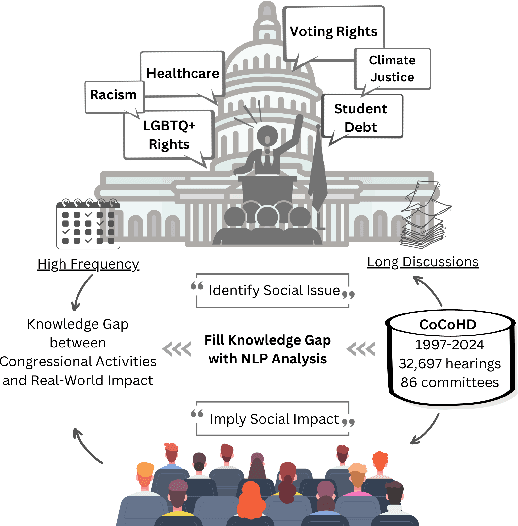
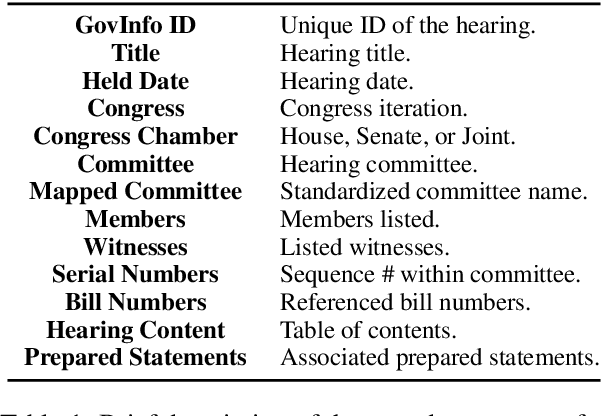
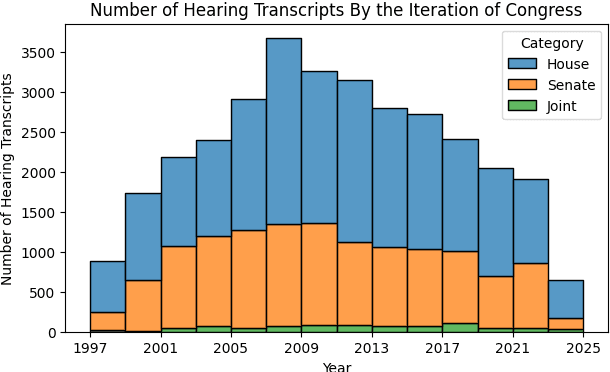
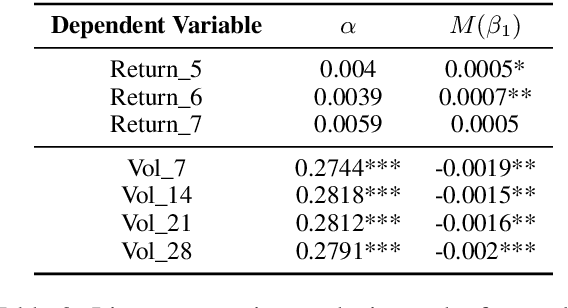
Abstract:U.S. congressional hearings significantly influence the national economy and social fabric, impacting individual lives. Despite their importance, there is a lack of comprehensive datasets for analyzing these discourses. To address this, we propose the Congress Committee Hearing Dataset (CoCoHD), covering hearings from 1997 to 2024 across 86 committees, with 32,697 records. This dataset enables researchers to study policy language on critical issues like healthcare, LGBTQ+ rights, and climate justice. We demonstrate its potential with a case study on 1,000 energy-related sentences, analyzing the Energy and Commerce Committee's stance on fossil fuel consumption. By fine-tuning pre-trained language models, we create energy-relevant measures for each hearing. Our market analysis shows that natural language analysis using CoCoHD can predict and highlight trends in the energy sector.
An Efficient Algorithm for Spatial-Spectral Partial Volume Compartment Mapping with Applications to Multicomponent Diffusion and Relaxation MRI
Jan 23, 2024



Abstract:It has been previously shown that high-quality partial volume tissue compartment maps can be obtained by combining multiparametric contrast-encoded MRI data acquisition methods with spatially-regularized spectroscopic image estimation techniques. However, the advantages of this combined approach generally come at the expense of substantial computational complexity. In this work, we propose a new algorithm to solve this kind of estimation problem more efficiently. Our algorithm is based on the linearized alternating directions method of multipliers (LADMM), and relies on the introduction of novel quadratic penalty terms to substantially simplify the subproblems that must be solved at each iteration. We evaluate this algorithm on a variety of different estimation problems (diffusion-relaxation, relaxation-relaxation, relaxometry, and magnetic resonance fingerprinting), where we consistently observe substantial (roughly 5$\times$-80$\times$) speed improvements. We expect that this new faster algorithm will lower practical barriers to using spatial regularization and multiparametric contrast-encoded MRI data acquisition methods for partial volume compartment mapping.
Fast Multi-class Dictionaries Learning with Geometrical Directions in MRI Reconstruction
Nov 20, 2015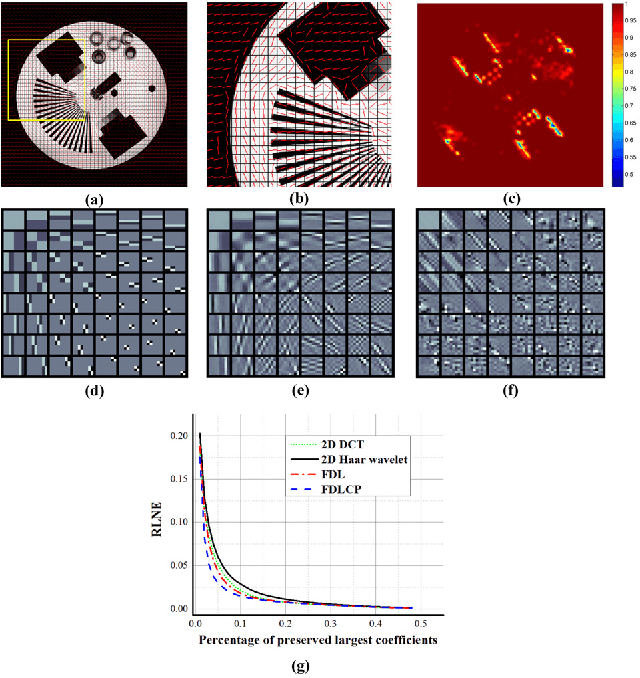
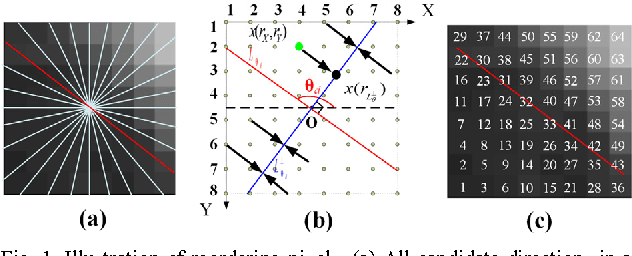
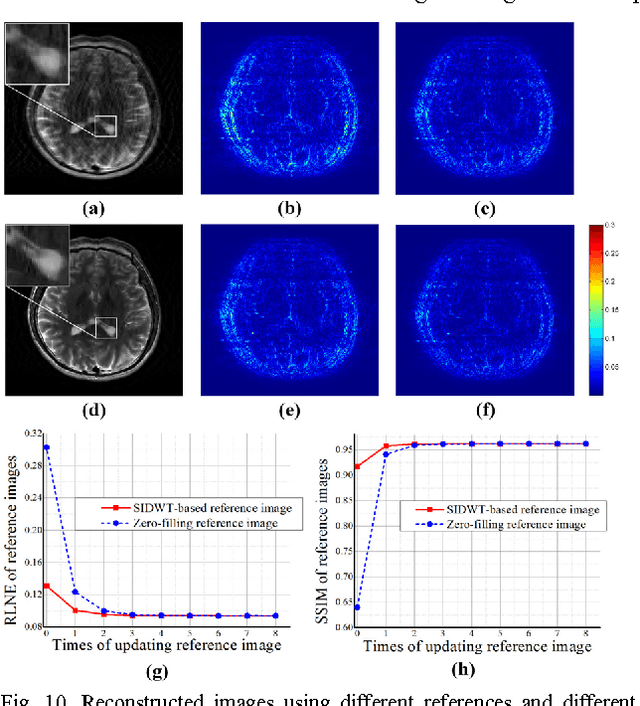
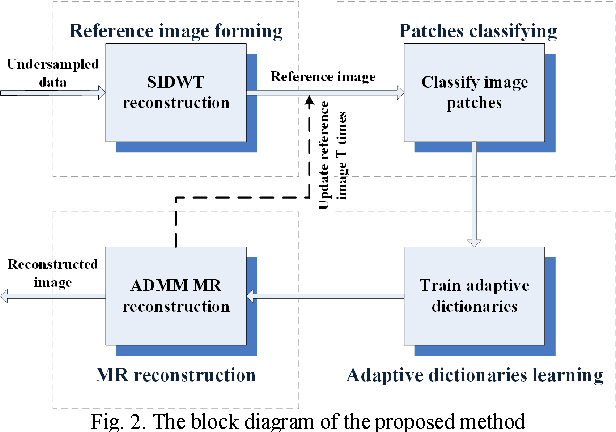
Abstract:Objective: Improve the reconstructed image with fast and multi-class dictionaries learning when magnetic resonance imaging is accelerated by undersampling the k-space data. Methods: A fast orthogonal dictionary learning method is introduced into magnetic resonance image reconstruction to providing adaptive sparse representation of images. To enhance the sparsity, image is divided into classified patches according to the same geometrical direction and dictionary is trained within each class. A new sparse reconstruction model with the multi-class dictionaries is proposed and solved using a fast alternating direction method of multipliers. Results: Experiments on phantom and brain imaging data with acceleration factor up to 10 and various undersampling patterns are conducted. The proposed method is compared with state-of-the-art magnetic resonance image reconstruction methods. Conclusion: Artifacts are better suppressed and image edges are better preserved than the compared methods. Besides, the computation of the proposed approach is much faster than the typical K-SVD dictionary learning method in magnetic resonance image reconstruction. Significance: The proposed method can be exploited in undersapmled magnetic resonance imaging to reduce data acquisition time and reconstruct images with better image quality.
Projected Iterative Soft-thresholding Algorithm for Tight Frames in Compressed Sensing Magnetic Resonance Imaging
Oct 03, 2015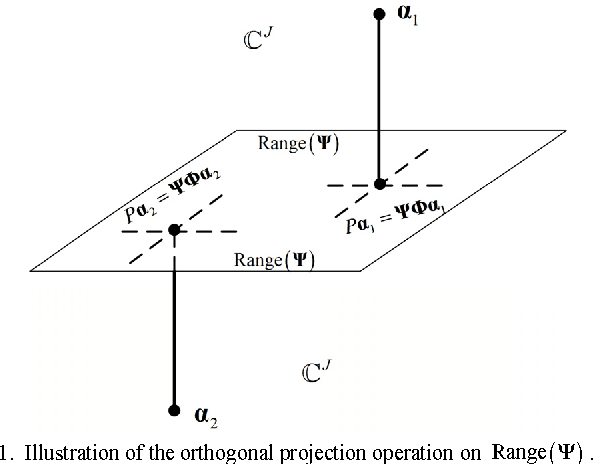
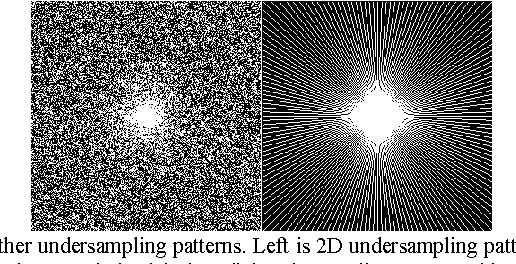
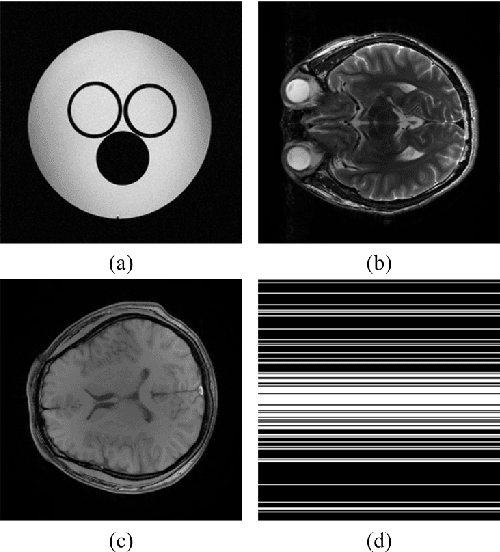
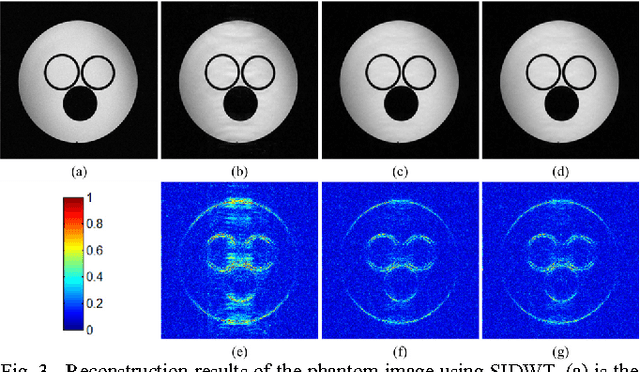
Abstract:Compressed sensing has shown great potentials in accelerating magnetic resonance imaging. Fast image reconstruction and high image quality are two main issues faced by this new technology. It has been shown that, redundant image representations, e.g. tight frames, can significantly improve the image quality. But how to efficiently solve the reconstruction problem with these redundant representation systems is still challenging. This paper attempts to address the problem of applying iterative soft-thresholding algorithm (ISTA) to tight frames based magnetic resonance image reconstruction. By introducing the canonical dual frame to construct the orthogonal projection operator on the range of the analysis sparsity operator, we propose a projected iterative soft-thresholding algorithm (pISTA) and further accelerate it by incorporating the strategy proposed by Beck and Teboulle in 2009. We theoretically prove that pISTA converges to the minimum of a function with a balanced tight frame sparsity. Experimental results demonstrate that the proposed algorithm achieves better reconstruction than the widely used synthesis sparse model and the accelerated pISTA converges faster or comparable to the state-of-art smoothing FISTA. One major advantage of pISTA is that only one extra parameter, the step size, is introduced and the numerical solution is stable to it in terms of image reconstruction errors, thus allowing easily setting in many fast magnetic resonance imaging applications.
 Add to Chrome
Add to Chrome Add to Firefox
Add to Firefox Add to Edge
Add to Edge